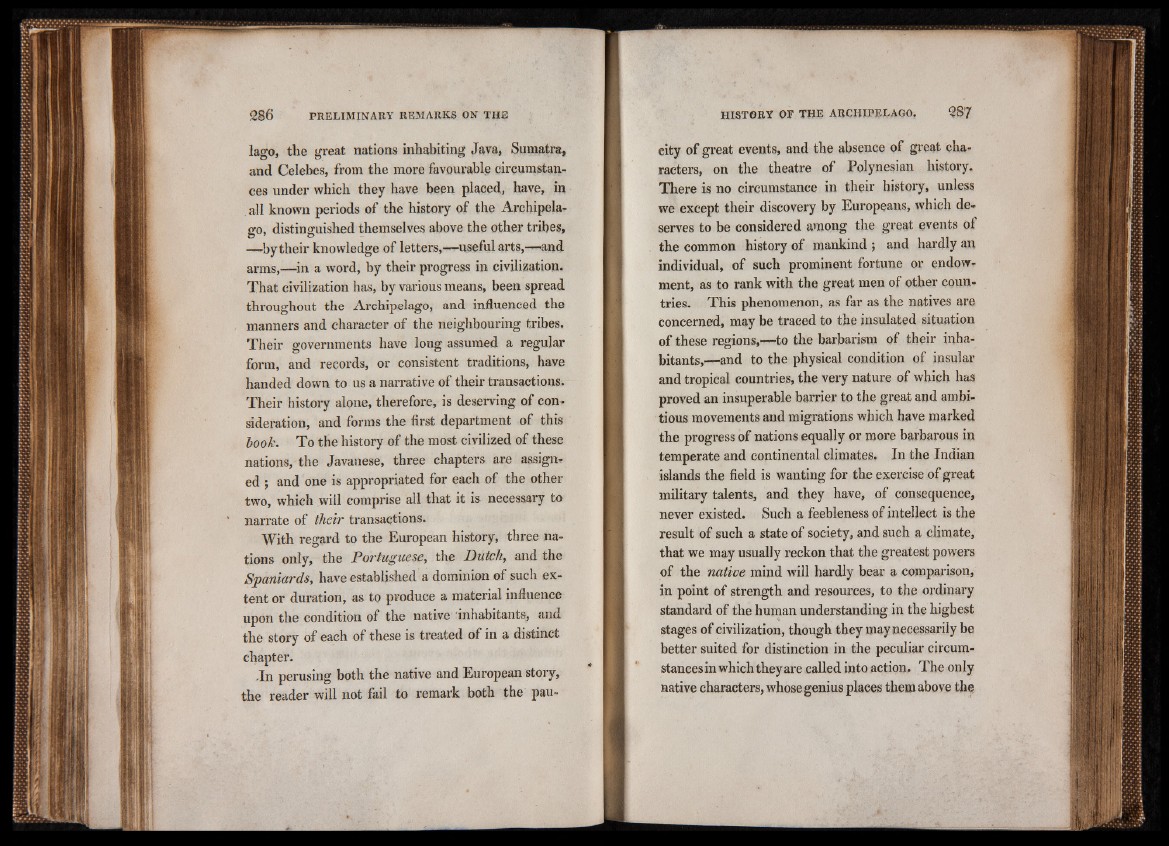
lago, the great nations inhabiting Java, Sumatra,
and Celebes, from the more favourable circumstances
under which they have been placed, have, in
all known periods of the history of the Archipelago,
distinguished themselves above the other tribes,
—by their knowledge of letters,—useful arts,—and
arms,—in a word, by their progress in civilization.
That civilization has, by various means, been spread
throughout the Archipelago, and influenced the
manners and character of the neighbouring tribes,
Their governments have long assumed a regular
form, and records, or consistent traditions, have
handed down to us a narrative of their transactions.
Their history alone, therefore, is deserving of con,
sidération, and forms the first department of this
book. To the history of the most civilized of these
nations, the Javanese, three chapters are assign*
ed ; and one is appropriated for each of the other
two, which will comprise all that it is necessary to
narrate of their transactions.
With regard to the European history, three nations
only, the Portuguese, the Dutch, and the
Spaniards, have established a dominion of such extent
or duration, as to produce a material influence
upon the condition of the native inhabitants, and
the story of each of these is treated of in a distinct
chapter.
-In perusing both the native and European story,
the reader will not fail to remark both the paucity
of great events, and the absence of great characters,
on the theatre of Polynesian history.
There is no circumstance in their history, unless
we except their discovery by Europeans, which deserves
to be considered among the great events of
the common history of mankind ; and hardly an
individual, of such prominent fortune or endowment,
as to rank with the great men of other countries.
This phenomenon, as far as the natives are
Concerned, may be traced to the insulated situation
of these regions,-—to the barbarism of their inhabitants,—
and to the physical condition of insular
and tropical countries, the very nature of which has
proved an insuperable barrier to the great and ambitious
movements and migrations which have marked
the progress of nations equally or more barbarous in
temperate and continental climates, In the Indian
islands the field is wanting for the exercise of great
military talents, and they have, of consequence,
never existed. Such a feebleness of intellect is the
result of such a state of society, and such a climate,
that we may usually reckon that the greatest powers
of the native mind will hardly bear a comparison,
in point of strength and resources, to the ordinary
standard of the human understanding in the highest
stages of civilization, though they may necessarily be
better suited for distinction in the peculiar circumstances
in which they are called into action. The only
native characters, whose genius places them above the